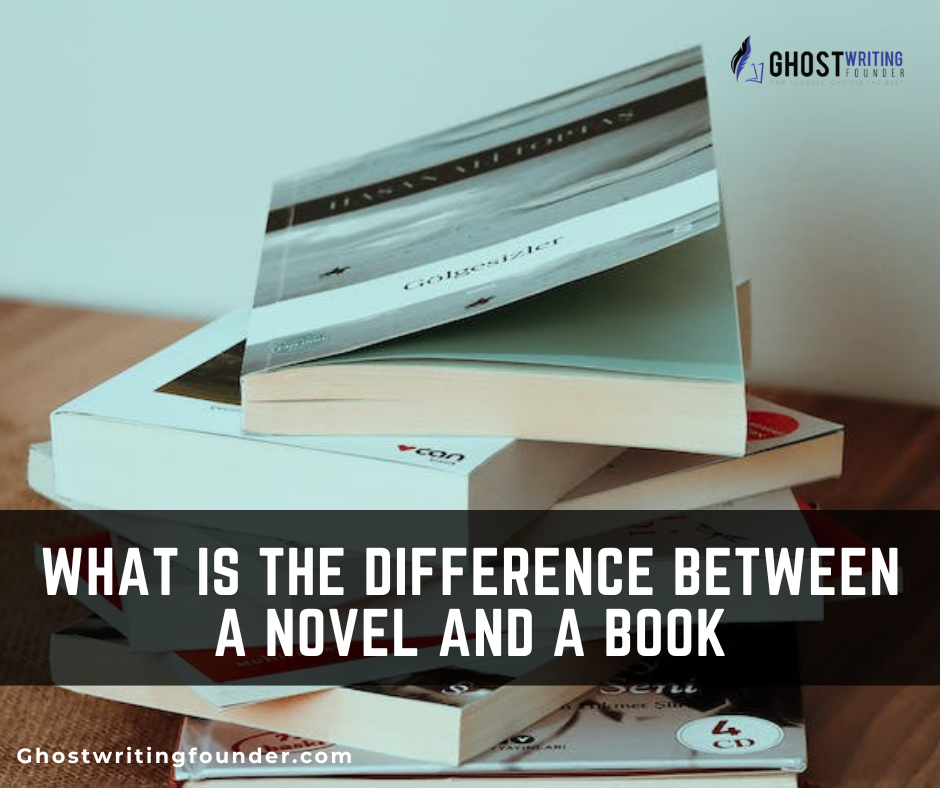
Book Writing
People often use the words ‘Book’ and ‘Novel’ interchangeably, making it difficult to understand their true differences. As a writer or author, it’s important to know the distinction between a Novel and a Book so that you don’t feel awkward using the wrong term in a particular situation. This article will explain the clear and subtle differences between these two terms. Let’s begin!
Definition of a Book
A book is a piece of writing or published information about one subject. For a deeper understanding, explore What is Non-Fiction?. It is made up of written words about a certain subject. For example, a book about World War I or II written by Ph.D. students would be called a book.
The point of writing a book is to help people learn more about a certain topic. Books can be either fiction or nonfiction or a mix of the two, For example, the people and places are made up of fantasy books. Nonfiction books, on the other hand, teach and explain things based on facts and theories. So, it’s true to say that all books except romances are nonfiction.
People who write books are sometimes called authors but can also be called writers. Authors talk about the basics of the topic they want to explore, examine, and explain the basic ideas and principles to actively or passively improve their readers’ knowledge. They give practical and theoretical advice by showing information in writing, charts, graphs, and pictures, among other ways.
The word “book” also refers to electronic books, and for more on this digital transformation, see How to Publish a Book on Amazon. In the current world of technology, where digital publishing on sites like Amazon is very marketable, e-books are becoming increasingly popular. With e-book publishing, different formats like PDF and EPUB make papers easy for readers to access.
Lastly, a book can also be a group of blank pages tied together so you can write on them. A good example is an exercise book, which is often used in schools and other places of learning. But this meaning has nothing to do with our talk about what differentiates a book from a novel. Comic Book Writing Services can help you in writing a comedy book.
Definition of a Novel
A novel is a carefully crafted work of fiction that captivates and entertains readers through storytelling. Writing a novel aims to tell a story from the author’s perspective.
A novelist is simply someone who writes novels. Instead of focusing on a specific subject, novelists create fictional stories that can be as long as forty thousand words or more.
Novels are grouped into different genres: fantasy, science fiction, romance, melodrama, thriller, crime, teen drama, horror, and more.
Through their stories, novelists shed light on various issues in society. They may aim to provoke thought, encourage readers to take a stance or deepen understanding of societal problems. Novelists often highlight these issues through the actions and struggles of their characters. A typical novel can contain up to sixty thousand words. Generally, a novel is larger compared to other books.
Main Differences Between Novels and Books
Here are the key points that explain the difference between novels and books:
A book is a published collection of information on a specific subject, printed on pages held together by a cover. However, a novel is a well-written work of fiction created to engage and entertain readers with a story.
While a novel is a type of book, a book encompasses various forms of literature, including novels, comic books, textbooks, journals, workbooks, and more. So, we can say that all novels are books, but not all books are novels.
A novel is called a novelist, while the writer of a book is referred to as an author. For those interested in authorship, Brands for Authors: Make Your Name an Asset offers great insights.
Novels are known for engaging the reader’s imagination and thoughts. They are written in a way that encourages continuous reading to become fully absorbed in the story. On the other hand, books may be read intermittently, as they cover a broader range of literary works and subject-specific information.
Novels typically include a story with multiple characters, a plot, dialogue, setting, theme, and conflict that reflect real-world situations. Books may contain various literary forms such as prose, poetry, stories, fairy tales, novels, etc., and subject-specific information.
Novels aim to captivate, relax, and entertain readers, while books are intended to introduce, educate, and inform readers about a particular subject.
A novel is generally expected to have at least forty thousand words in word count. However, there is no specific word count requirement for a book.
Examples and Comparisons
Let’s use some examples to better show the differences between novels and books:
Classic Novels
Classic novels such as “Pride and Prejudice” by Jane Austen, “Moby-Dick” by Herman Melville, and “To Kill a Mockingbird” by Harper Lee are great examples of novels, and for those looking to write similar works, Hip Hop Ghostwriting Services can provide assistance. and Hip Hop Ghostwriting Services can assist you in writing these types of novels. They have deep and complex stories, well-developed characters, and themes that endure over time.
Popular Books in Various Genres
On the other hand, there are popular books in different genres that go beyond the novel form. For instance, “Sapiens: A Brief History of Humankind” by Yuval Noah Harari is a non-fiction book exploring humankind’s history. “The Alchemist” by Paulo Coelho is a self-help novel that offers guidance and inspiration. “The Guinness World Records” is a reference book that provides information and records. These books cater to different interests and serve distinct purposes.
The Similarities Between a Book and a Novel
The similarities between a book and a novel are important to note. While they have some differences in context, they also share common characteristics. Let’s look at these similarities:
Content
Both books and novels are materials meant for reading. If you focus more, you’ll notice that both are divided into chapters, which helps with organization and finding information easily.
Information
The main purpose of reading books and novels is to gain knowledge. Whether you’re seeking entertainment or education, both materials provide information. Ghostwriting Founder is specialized in creating accurate and factually written content.
Medium of delivery
Books and novels are written or printed on paper, and for those interested in the publishing process, Book Publishing Services can be a valuable resource. Nowadays, digital formats are becoming more popular due to self-publishing. However, content delivery remains the same for both books and novels.
Books and novels are similar because they contain chapters, provide information, and can be found in print or digital formats.
Main Attributes and Elaborate Information
| Aspect | Book | Novel |
|---|---|---|
| Definition | A published collection of written words on a specific subject. Can be fiction, nonfiction, or a mix. | A work of fiction, telling a story from the author’s perspective, often with a complex plot and characters. |
| Purpose | To educate, inform, or entertain about a specific topic or subject. | To captivate and entertain through storytelling, often highlighting societal issues. |
| Writer | Referred to as an author or writer. May provide practical/theoretical advice and information. | Known as a novelist, focusing on creating fictional narratives. |
| Content | Can include prose, poetry, stories, fairy tales, and subject-specific information. | Includes characters, plot, dialogue, setting, theme, and conflict reflecting real-world scenarios. |
| Length | No specific word count. Varies based on subject and type (e.g., textbooks, journals). | Generally expected to be at least 40,000 words in length. |
| Genres & Styles | Encompasses a wide range of genres including textbooks, comic books, journals, workbooks, etc. | Grouped into genres like fantasy, science fiction, romance, thriller, etc. |
| Impact on Reader | Designed to introduce, educate, and inform. Can be read intermittently. | Aims to engage imagination, provoke thought, and encourage continuous reading. |
Conclusion
A novel is a type of book, but a “book” can describe a wider range of written works. Novels are defined by their length, complexity, growth of characters, and exploration of themes. For more on crafting compelling characters and themes, consider Content Development Services. On the other hand, books come in many different styles and serve many purposes, including entertainment, education, and useful advice. By knowing the differences between novels and books, readers can try out different kinds of writing and choose what they want to read based on that.









Leave a Reply